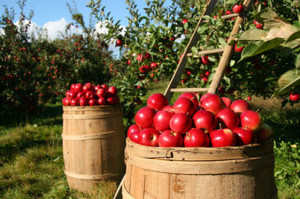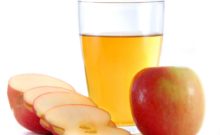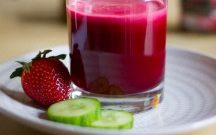 Organic Living Takes a Village
Organic Living Takes a Village
A common concern among those who are trying to live an organic life is the cost. Not everyone lives in the country. The best way to live organically is with the support of a community. Nevertheless, helping the consumer directly can be difficult. An organic farmer and organic businesses incur an immense cost just to become certified, never mind the cost to operate. So how is the USDA helping consumers? How can we support organic living and each other?
Sharing Cost in Community
From organic milk to organic granola bars, more and more consumers want to see certified organic produce on their store shelves. Making organic food more accessible to the masses has been a longtime dream for organic farmers and the organic community as a whole. This is where Cost Share Programs come into play. Becoming certified is not just a very stringent process with very specific requirements – it’s also costly for a farmer starting out. Many organic farmers simply can not afford the cost of certification but their food I just as safe and just as organic as the next organic farmer. But without the stamp of approval it’s much harder to sell. There are just too many frauds out there offering non-certified “organic” claims.
The USDA Makes a Way
In 2014, the USDA made an amazing move to protect and preserve farmers and agriculture. They enacted The Farm Bill. With this bill, it allowed $11 million per year to be released for helping organic farmers to become certified! This is known as the Organic Cost Share Program “The U.S. is currently experiencing an explosion of demand for certified organic products and our goal is to see that demand is met by U.S. farmers. We expect that the organic cost share programs will encourage more U.S. farms to certify and/or add another certification scope to meet this demand,” said Abby Youngblood, Executive Director of the National Organic Coalition. Last year, 10,000 reimbursements were issued. That means 10,000 new certifications could be paid for!
Community Supported Agriculture (CSA)
Another way the cost of living an organic lifestyle is helped is by programs like CSA. The Community Supported Agriculture system is just as it sounds. This is where the community comes together and purchases a share of a farm. Like a “farm share” much like you would think of a time share property. Only instead of sharing the home for vacation – it is food! You purchase your portion, and during each season, you have a specific amount of fresh organic produce and whatever other organic food is produced readily just for you! It’s a farm co-op! What a great way to directly support an organic farmer and ensure your family receives the freshest organic food possible. The best part is you don’t have to live in the country. Often there is a central location where the portions are brought, and you simply go and pick up your food. Honey, dairy, eggs, and produce are some of the wonderful CSA products that can be available. It takes a community to keep organic farming alive. It takes organic farming to keep the organic community alive – support your local co-ops and find out what is available in your area.
Applications & Resources
- Read more at USDA’s website about what is going on to help the organic community reach new heights.
- Check out the Northeast Organic Farming Association to see how they are bringing the organic community together!
- Go to WWOOF for information on organic farming around the world
iGOZEN is a philosophy and a way of life. We proudly carry the organic label and make all of our products chemical and toxic-free. We hope you enjoy our articles and posts and we want to encourage you to seek out earth-friendly, safe products for your food wash and cleaning needs – like iGOZEN.



